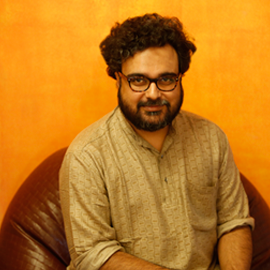Why Rajnath Singh's remarks on Dalit atrocities may prove costly for BJP

Addressing the Parliament on the issue of Dalit atrocities, Home Minister Rajnath Singh rubbished the Opposition's claim that incidents of violence against lower caste people were on the rise under the Narendra Modi regime. While Rajnath may have made the remarks to defend his government, they have done no good to his party's image.
Particularly at a time when the prime minister is offering his own 56-inch chest to bullets in place of the Dalits. Although Modi has stopped short of promising concrete action against the self-appointed cow vigilantes - he has not even warned them of action - his statement nevertheless reflects the gravity of the situation.
Rajnath's statement could be read in the context of his upper caste politics: he appears to be sending a message to his core vote bank. The home minister is not ready to budge on this issue and certainly will not admit any fault on part of his ministry. Adopting this stance would keep his position from weakening among the upper castes. And this isn't something the BJP and its support base would complain against.
Also Read:Why Modi is so desperate to own the constitution, and Ambedkar
Nevertheless, it displays confusion within the BJP on this issue. Rajnath's statement clearly illustrates that he is not on the same page with Modi so far as the Dalit unrest is concerned. Indeed, the entire government seems to be in a state of confusion as it seeks to respond to criticism from among the upper castes and the Hindutva forces over Modi's remarks against cow vigilantes.Talking in different tongues
Rajnath's statement also undermines the prime minister's efforts to make inroads into the Dalit vote bank. Both the RSS and Modi have gone out of their way to claim Ambedkar's legacy over the past two years or so. The Dalits are already dissatisfied with his government and party. The apathy reflected in the home minister's words would likely only add insult to the community's injury.
The BJP is in a catch-22 situation as any attempt to placate one community alienates another. If it expels Dayashankar Singh to pacify angry Dalits, for example, the Kshatriya's take offence. An attempt at reverting to pro-upper caste rhetoric spoils any chance of winning over the lower castes, who are seen as vital to the party's prospects in the upcoming UP assembly election. It's a precarious situation.
Also Read:BJP on the backfoot: Dalit movement may harm party in poll-bound Gujarat
It appears Rajnath has closed his eyes to the simmering unrest among the Dalits in Maharashtra, Gujarat, UP and Punjab. The party cannot hope to thrive in any of these states without the support of the backward segments of the society. This is why Ambedkar has featured more prominently in Modi's speeches over the past two years than his ideologue VD Savarkar. Rajnath's stand has exposed Modi's hypocrisy as well as his party's predominantly upper caste character.
The BJP has repeatedly used nationalism and communalism to win over the backward communities. However, the wounds inflicted on the Dalits, both physical and psychological, in the name of "cow protection" are unlikely to heal with empty rhetoric.
Just when Rajnath was making his speech, Dalits were marching on the roads of Gujarat. Rajnath essentially thumbed his nose at the Dalits. His party may have to pay dearly if the Dalits respond in kind.
Also Read: Shoot me, not my Dalit brothers, says PM Modi. Twitter obliges
First published: 13 August 2016, 10:59 IST






![BJP's Kapil Mishra recreates Shankar Mahadevan’s ‘Breathless’ song to highlight Delhi pollution [WATCH] BJP's Kapil Mishra recreates Shankar Mahadevan’s ‘Breathless’ song to highlight Delhi pollution [WATCH]](https://images.catchnews.com/upload/2022/11/03/kapil-mishra_240884_300x172.png)

![Anupam Kher shares pictures of his toned body on 67th birthday [MUST SEE] Anupam Kher shares pictures of his toned body on 67th birthday [MUST SEE]](https://images.catchnews.com/upload/2022/03/07/Anupam_kher_231145_300x172.jpg)






